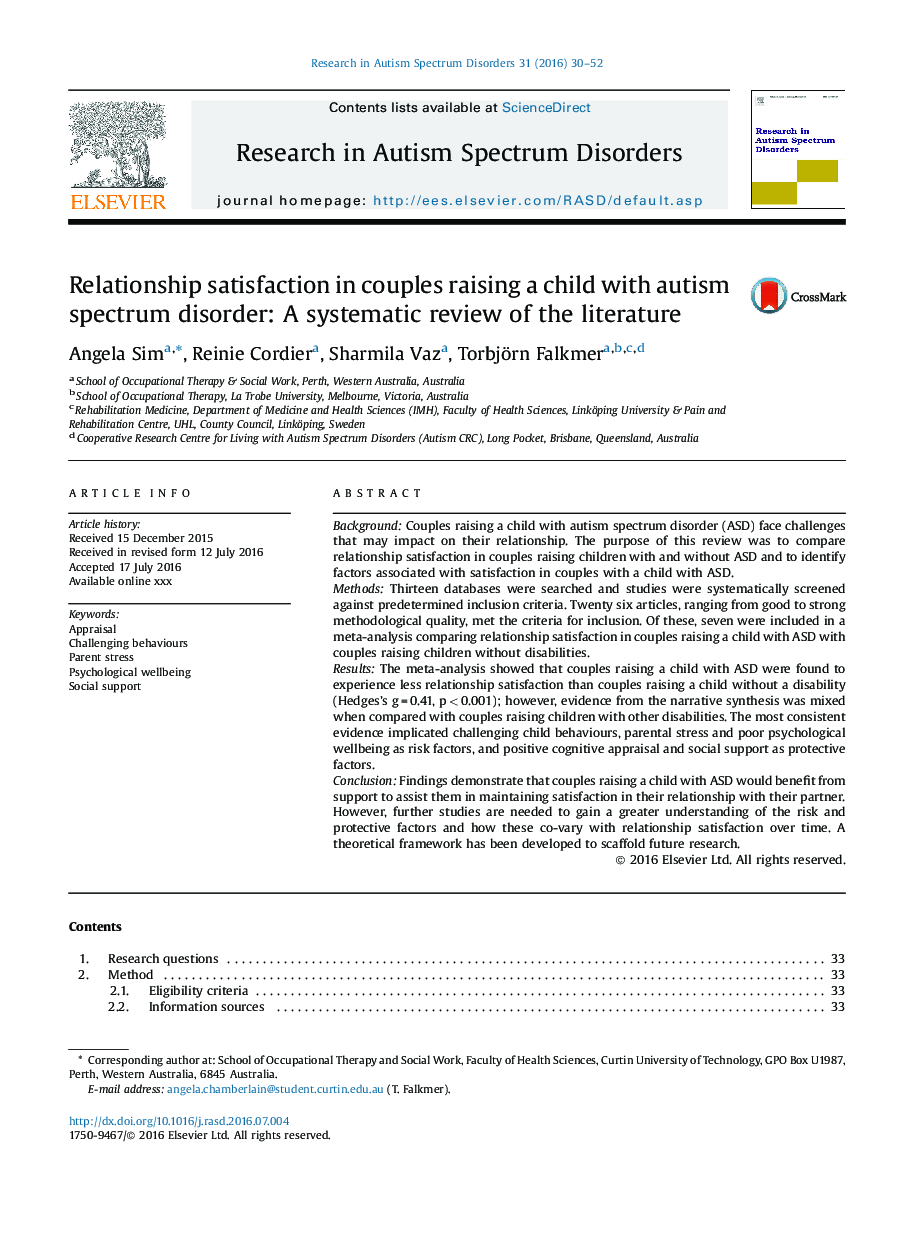| Article ID | Journal | Published Year | Pages | File Type |
|---|---|---|---|---|
| 369898 | Research in Autism Spectrum Disorders | 2016 | 23 Pages |
•Couples with a child with ASD often experience poor relationship satisfaction.•Risk factors include challenging behaviours, parental stress and poor mental health.•Protective factors include positive cognitive appraisal and social support.•Future research should investigate changes in relationships over time.•A theoretical framework is presented to scaffold future research.
BackgroundCouples raising a child with autism spectrum disorder (ASD) face challenges that may impact on their relationship. The purpose of this review was to compare relationship satisfaction in couples raising children with and without ASD and to identify factors associated with satisfaction in couples with a child with ASD.MethodsThirteen databases were searched and studies were systematically screened against predetermined inclusion criteria. Twenty six articles, ranging from good to strong methodological quality, met the criteria for inclusion. Of these, seven were included in a meta-analysis comparing relationship satisfaction in couples raising a child with ASD with couples raising children without disabilities.ResultsThe meta-analysis showed that couples raising a child with ASD were found to experience less relationship satisfaction than couples raising a child without a disability (Hedges’s g = 0.41, p < 0.001); however, evidence from the narrative synthesis was mixed when compared with couples raising children with other disabilities. The most consistent evidence implicated challenging child behaviours, parental stress and poor psychological wellbeing as risk factors, and positive cognitive appraisal and social support as protective factors.ConclusionFindings demonstrate that couples raising a child with ASD would benefit from support to assist them in maintaining satisfaction in their relationship with their partner. However, further studies are needed to gain a greater understanding of the risk and protective factors and how these co-vary with relationship satisfaction over time. A theoretical framework has been developed to scaffold future research.
